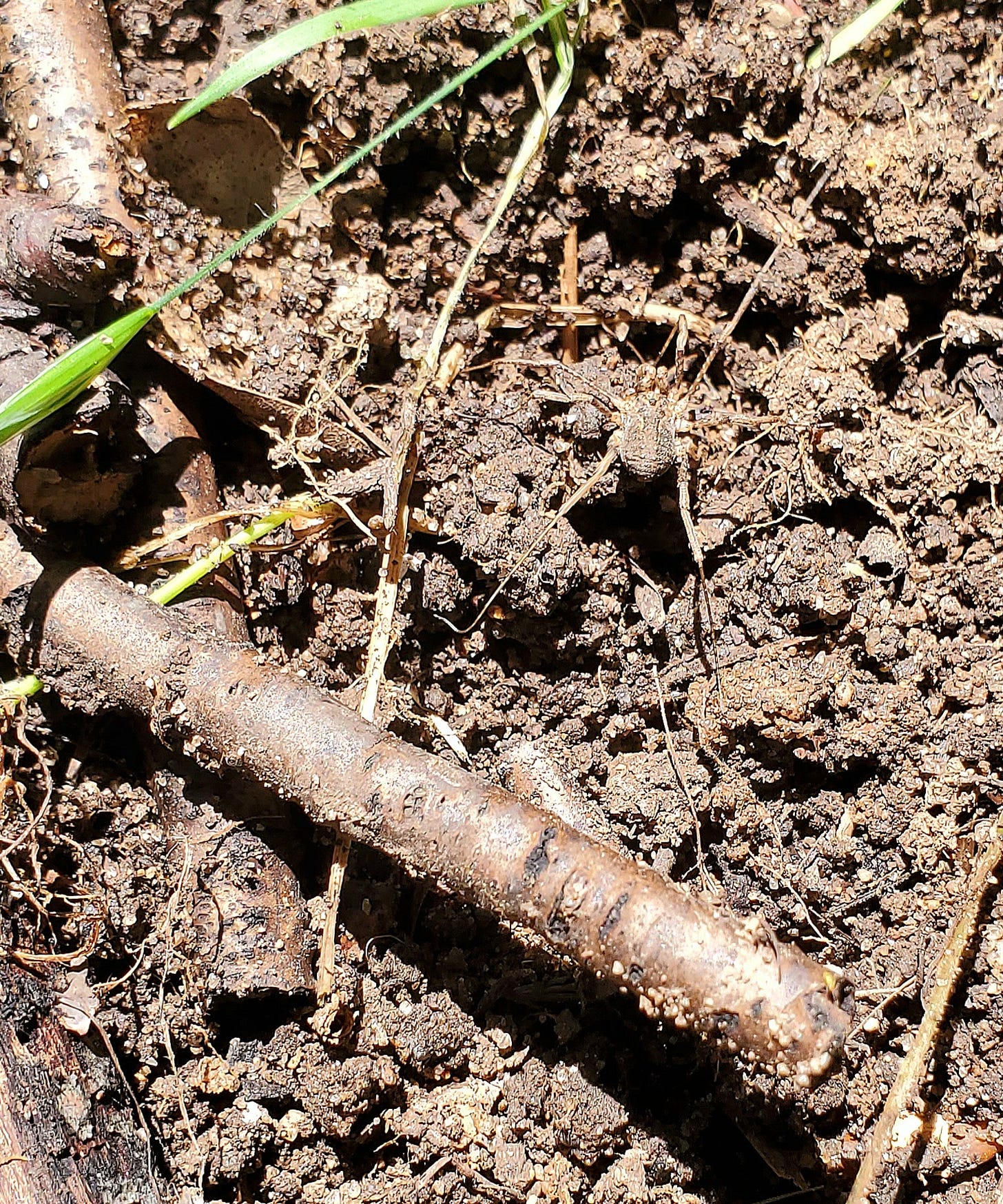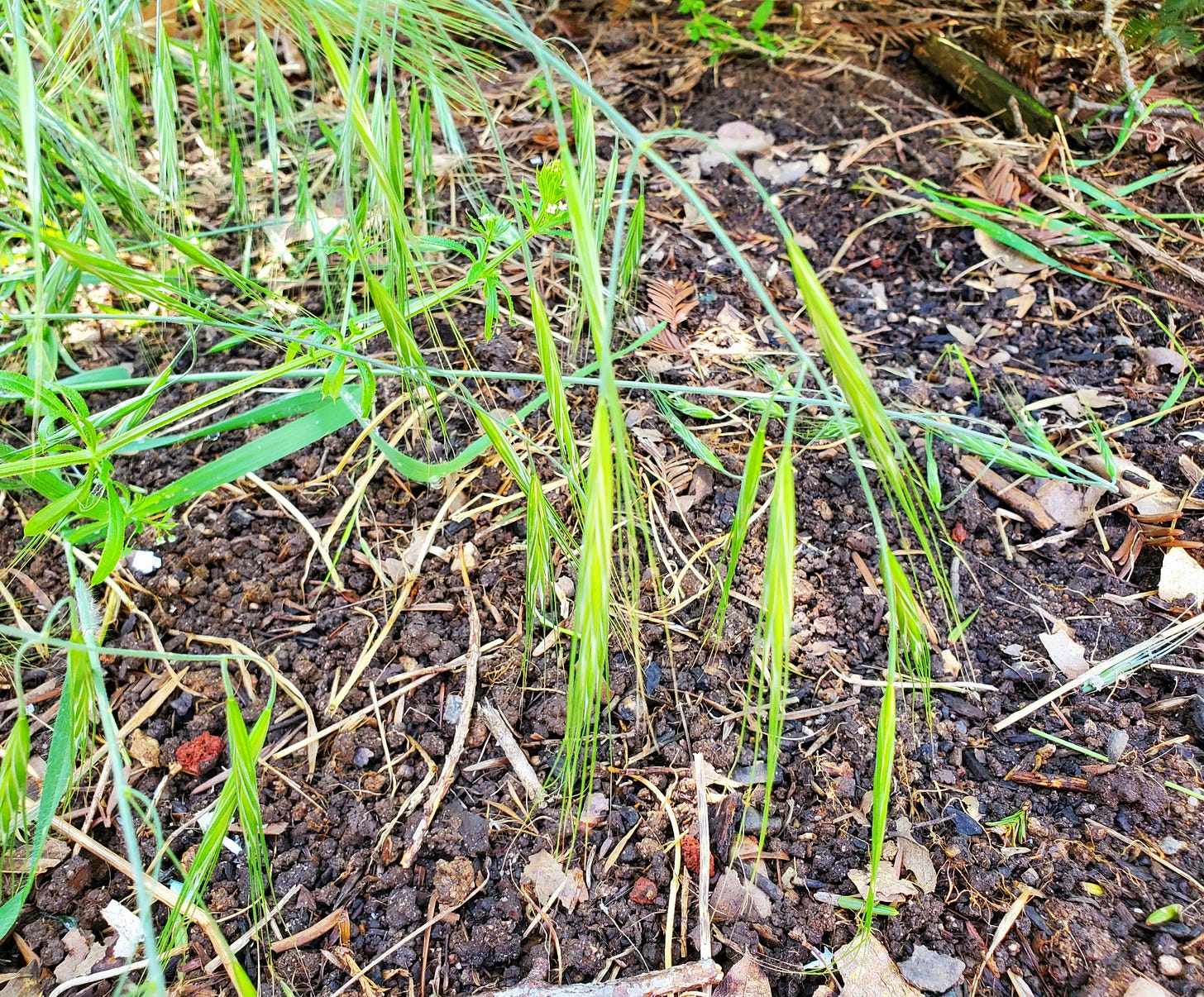Picking Winners and Losers in a Microcosm

Once upon a time, Hank and I looked out into our new home’s back yard, which we were behind on mowing, and saw an interesting plant growing under a dying almond tree. We wondered aloud what it might turn into, and that quickly ballooned into an ethos of letting things run wild at the back end of our quarter-acre property.
It’s been fun to see the ebb and flow of plants in the yard. There’s always a patch of something interesting popping up, and species that seem to own the place sometimes manage to wipe themselves out in a few years (humanity, much?).
The more important aspect of the wild ethos, though, is habitat. I’m a big fan of leaving places in my yard for birds and rodents and bugs and the odd bigger visitors - skunks, possums and raccoons. It’s an addicting combination of envirovirtue, laziness and really effective pest control: We found that if you give critters places to live outside, they rarely come inside, meaning there’s no need for people to come spray poison around our house.
Even that, though, is subject to the ebb and flow of my life.
In recent years, the “winners” have been ripgut and stickyweed, both of which are hell on pets. Both get stuck in fur, and ripgut seed heads can burrow deep into pets’ ears, noses and paws and cause infections, even death.
And while the Broken Windows Theory, once popularized by Rudy Giuliani, is now widely associated with discredited stop-and-frisk policies, it has an important grain of truth: Mess breeds mess. Broken windows, unrepaired, lead to more broken windows. Litter, uncollected, leads to more litter. Weeds, left untended, lead to more weeds.
When Hank left three months ago, I needed something that would move me forward, and the obvious solution was to remake the house and yard, purging them of ghosts and voids that would make me sad, and checking off vast swaths of my “someday I really oughta _____” list.
Not that I was going to put in a lawn or anything - I think they are wasteful and should be banned in the arid West - but I decided I was done indulging unpleasant invasives.
So I have spent the past two months pulling weeds. At my busiest, I have filled four 96-gallon green-waste bins in a week, and thank God my neighbors have had space in their bins to share or I’d have garbage bags stacked everywhere.
This is hard work. At its peak, my shoulders were shot, and my wrists’ tendons were getting so inflamed I had to wear splints for a while to give them a rest. But the yard was looking better. Not exactly like an English garden, but more like the semi-wild regional parks I enjoyed in my childhood.
And, oh, the things I’ve found in those weeds - not least of which the hidden piles of tree branches and discarded plants from the garden.
“Do you know how many fucking wood piles I’ve found, Hank?” I asked him one day this month.
Hank, accustomed to me hounding him for his Entropy Accelerator ways, probed his memory thoughtfully for an answer. As if the question were really a question and not an accusation.
He came up short.
“EIGHT. EIGHT FUCKING WOOD PILES." And I’m not even done yet - there could be more.”
To his credit, one of those piles was mine: the discarded trimmed branches from a Meyer lemon with - no exaggeration - inch-long thorns.
Feigned rage notwithstanding, though, all of those piles are still there.
Part of the reason is there’s no room to toss them in the green-waste bins yet, and I haven’t gotten around to the obvious: renting a wood chipper. But the other reason is they’re just such good habitat. I know lizards love them, and rodents too. They’re also a ready source of twigs for bird nests.
You’d think that act of grace would be enough for me to cling to my cloak of enviro-virtue. But the truth is I constantly see the impact of pulling that sea of weeds as insects, spiders, worms and caterpillars scramble for cover when I yank out their homes at the roots. This stuff is absolutely full of life - life that has its own right to exist, life that feeds other life.

There are neighbors’ yards that still have plenty of this habitat, but that stuff is likely already full of critters, so I know I’m dooming a lot of these guys to death. I bear no animosity toward them at all. I even nudge them in safer directions as they flee the chaos I’ve wrought, hoping for the best.
But they are, inescapably, the collateral damage of my decisions.
I feel bad about it. I’ll go to great lengths to rescue a bug from the bathtub and return it to the outdoors, and then I turn around and do something like this.
I hate feeling like a hypocrite. But I’ve decided against prolonged self-flagellation.
The truth is that even the best choices can have dire consequences. Sometimes you have to make those choices anyway, and simply accept the ache of regret as the catastrophe unfolds. On this planet, there is no life free from harm.
But the ripples of damage will eventually peter out. Life will take its new form.
It’ll be OK.




Love this on so many levels, Holly:
“The truth is that even the best choices can have dire consequences. Sometimes you have to make those choices anyway, and simply accept the ache of regret as the catastrophe unfolds. On this planet, there is no life free from harm.”
You could always look at this from a different angle....
In actuality you are helping to select for vigor and adaptability within the gene pool.
Only the strong survive is ever present in nature, this is how species win the long game, by exposure to agents of change and disruption. One weed pull at a time, little by little, and your efforts are appreciated by millions (of critters and maybe a few of your neighbors, ha ha).
Always look forward to your posts, keep up the excellent writing!